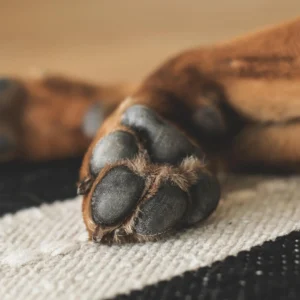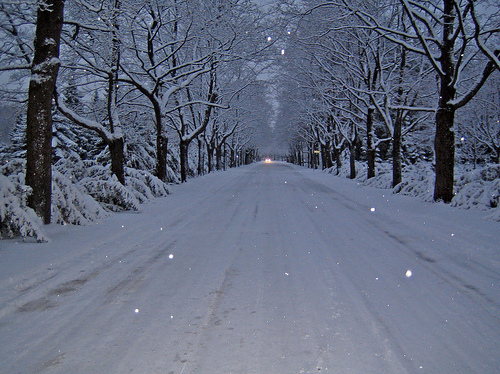by: Art Rosch
The Battle of the Passions….
Once upon a time I was agoraphobic. For years, I had a terror of strange spaces. I was limited to my house, my yard, my car, and my place of work. If I attempted to break this tight little orbit, I became sick. My stomach churned, my heart raced, my breathing grew difficult. At the time I didn’t know the term “Panic Attack.” but my symptoms were classic. Trying to go anywhere outside of my tiny race track brought on a general collapse. I had no social life. I did nothing but read, watch television and observe the animals that visited the hillside behind my house.
One day, I was out in the yard during the deepening twilight. I had a pair of binoculars in my hands poised for watching a herd of deer who came to feed on the ripening pear trees at the top of the hill. It was almost dark and I had a sudden impulse to turn the binoculars towards the dusk-filled sky.
I was stunned. The binoculars revealed thousands of more stars than could be seen with the naked eye.The heavens were visually confusing in their depth and abundance, but right then and there I fell in love with the nighttime sky.
I spent the next several hours scanning the heavens with my binoculars, trying to locate stars in familiar constellations. My sky vocabulary was pathetic. I knew The Big Dipper (which is only part of a constellation), Orion and I knew Cassiopeia, because of its distinctive sideways “W” shape.
I saw things through my trusty binoculars that I couldn’t name. I saw clusters of stars that looked like back-lit luminous cotton. I was lost, in the topographic sense.
Yet, if I chose to examine a single star in an obvious constellation I could find it. I could locate the end-star in the Big Dipper. It’s called Alkaid and is a blue main sequence star. But it was difficult to maneuver to the next star in the line without first taking my eyes off my binoculars, locating my target, then carefully measuring my angle of movement. My actions that night were limited to the familiar, because otherwise, the sheer abundance of stars in the night sky was confusing.
I was fortunate enough to live in a dark suburb, sixty miles outside of San Francisco. There were no streetlights. No buildings with countless windows aglow. There were few cars and very little light pollution. In late summer where I live, The Milky Way can be seen with its diffuse, glowing fleece and its long lanes of darkness and dust.
It breaks my heart to think of the billions of people who will go from cradle to the grave without seeing a truly darkened sky, without seeing The Milky Way in all its majestic beauty. People who will live out their lives without giving the intrinsic splendor of the night sky a passing glance. To me, a life without an awareness of the sky’s beauty is like an amputation of the soul. You’re cut off from your ancestors, from the thousands of generations who measured their lives by the movements of the heavens.
I’m not a scientific person. I have no Mathematics skills, no understanding of Chemistry or Physics. I slept through those classes when I was in school. Now, I’ve became a student. I was determined to give myself some training in Astronomy. I learned to read sky charts and I subscribed to magazines. I joined a club.
I needed to see a darker sky. It became an insistent, organic hunger. I felt compelled to go to places more than a hundred miles from a large city. There is a substantial difference in what’s visible from a night sky that isn’t compromised by light pollution. I had to be under that dark sky.
The problem was that I was agoraphobic. The idea of getting into a car and driving to a new place hundreds or even thousands of miles from home made me break into a cold sweat. I have since realized that my agoraphobia was but a subset of phobic responses to an even larger meta-phobia that I called Neophobia: Fear Of New Experiences.
This is a common posture for people with Post Traumatic Stress Disorder. I suspect that almost everyone has some form of PTSD and that PTSD is another name for the experience called “Life.”
There are, however, people who have more severe life traumas with longer lasting and more intensely painful body memories. I qualify for this troubled group.
I’m wandering a bit, here. Why not? This is about reviving in myself the ability to wander. The point of this article is to explain the way in which I pitted a powerful passion against an equally powerful terror.
I was corresponding with people who had been to places like Joshua Tree and Anza-Borrego State Park. They measured the skies darkness and clarity by referring to the dimmest star visible to the naked eye. Stars are rated by magnitude, with the lower numbers indicating greater brightness. This system was first used by the Greeks around 150 B.C. It hasn’t changed very much since that time, which is remarkable. That’s one of the appealing features of Astronomy; much of its lore connects to ancient cultures, without the intervening technology altering its nomenclature or mythology.
Let’s describe a star of Magnitude 1 as a star visible even in a well-lit suburb of a major city. The star Sirius, the brightest naked eye star in the sky (excepting the Sun), is a Magnitude -1.4. That is Negative One Point Four. The brighter stars go into negative numbers. A bright full moon is Mag -12.6. The sun is magnitude -26.8. Astronomers describe the sky’s clarity in terms of Visible Magnitude. I was living under a Mag 3 sky. My friends in the Mojave Desert were under a Mag 6 sky! In practical terms, that would describe a sky so rich in stars that the outlines of well known constellations almost vanish with the profusion of surrounding stars.
I was yearning to experience dark, beautiful skies. At the same time, I was terrified to leave my yard. I could barely cross the street. But I wanted to go to the high desert, down to the Mojave and cross into Arizona, where the cities are distant and the sky is dark and the colors of the stars sort themselves into distinct categories of white, red, yellow, green and blue.
I struggled. I procrastinated. I beheld my fear like a chain and a set of padlocks, and I was angry with myself. Everyone goes places! Millions of people jump into cars, get into airplanes, leap from coast to coast, continent to continent, without giving such travel a second thought.
And here I was, barely capable of making the twelve mile drive to my place of work.
I had an acquaintance who spent a lot of time in Yosemite Valley. She was planning a drive from the Bay Area in two weeks. I asked if I could come along. I explained my phobia. She said she was willing to help.
The big terrors that we harbor in our fantasies usually turn out to be less taxing than the grief we’ve given ourselves in anticipation of the event.
On the appointed day, I got into my friend’s Honda, carrying my binoculars, a book of star charts and two changes of clothes. As we drove up Highway 80 I sat in the front seat, rigid as setting concrete. I was desperately ill for the first sixty miles. An hour-long panic attack savaged me like a hungry wolf. I felt as if I would never be able to get back home. Then I had the sensation of hitting a giant rubber band. It stretched and stretched, urging me to reverse my direction, to turn back. I had deliberately trapped myself by this arrangement. I couldn’t tell my friend to cancel her trip because I was phobic, because I was, basically, a great big scaredy cat.
I knew I had to break through the rubber band.
I was so sick with fright that we had to stop on the side of the road three times so I could puke. My friend was beautifully patient and supportive.
Just beyond Sacramento, about eighty miles from home, I puked one last time and the rubber band broke. The pressure vanished.
I was free. I was still scared, but I could go now to see the sky from Glacier Point. From an altitude above five thousand feet. From a place where the sky’s clarity is utterly pristine.
Nobody really wants to face their deepest fears. We would prefer to get through life dodging and weaving, minimizing our risk. But some fears are debilitating. My phobia was preventing me from pursuing a love affair with the sky. My phobia was crushing my life, and if this was the only way to deal with it, pitting terror against passion, then so be it.
Passion won the contest of psychic forces. Since my breakout to Yosemite, I’ve traveled thousands of miles, lugging telescopes, cameras, attending star parties and living a life of stellar enjoyment.






